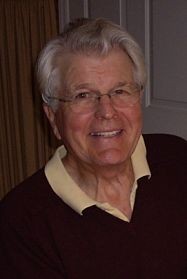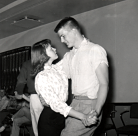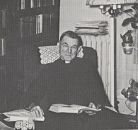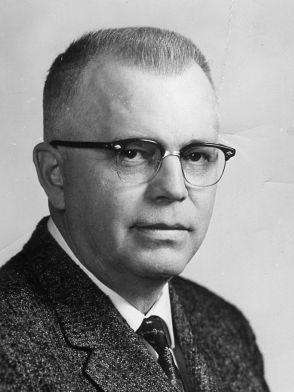Adoption Was an Unwed Teenage Mother’s Option Before Out Patient Abortion Became Available
#adoption #1950s #teenagepregnancy
Adoption was a commonplace practice in the 1940’s and ‘50’s before the introduction of the pill and outpatient abortion service. The children who lived next door to my family when I was a boy were adopted, all four of them. Kids in the neighborhood thought nothing of it. If questioned, parents responded with tales drawn from the mythology of storks delivering babies. The poor stork lost his way and dropped a baby off at the wrong house or variations thereof. It would be years before earnest curiosity would be fueled by hormones.
When my girlfriend Elaine became pregnant during my senior year in high school, putting our child up for adoption became just one of many options as far as my parents were concerned. Elaine at 18 was an adult under the law, but I could not marry without my parents’ permission. How our families dealt with our predicament is the subject of this article, the second in a series that explores the prevailing beliefs and values regarding adoption, abortion and teenage pregnancy during the decade of the Fabulous Fifties. Readers are urged to read my previous post before moving ahead with this one.
A Parlor Game
Tragedy and suffering are, in the first place, measured within the dimensions of a person’s own life. As I wept over the disappointment I had caused my father, my adolescent mind was envisioning that I had hurt him, that his plans for me were not going to come true, and that my future was to be martyred on the altar of repentance and shame. Pretty melodramatic stuff, but true enough at the time. I would not blame the reader for thinking, “Poor little rich boy.” In reality, of course, my parents were not wealthy, but they were people of means. Becoming a doctor or dentist was still a possibility for me whether I married or not. Given the scale of human suffering, from the starving people in Africa to the hungry addicted children in the slums of this country, or families forced from their homes during war, my problems were a parlor game that could have been called at any time.
Getting married to Elaine—the decision her pregnancy seemed to dictate—was foregone conclusion for me. I wanted to marry her. When it was suggested that our child could be put up for adoption, I protested. I wanted to raise our baby as the father. I felt nothing heroic in this stance. Now, fifty-five years later, I doubt that I would have fought to the death to have my way. At the time, however, I countered that I did not want to have a child in the world whose whereabouts would be unknown to me for the rest of my life. My parents believed me, at least let to the extent they let it enter their considerations.
I would not turn 18 for three months. Yet the thought of waiting until I attained legal age never crossed my mind. I sought more from my parents than their permission. I wanted their blessing. I felt ready to assume the role of husband, father, and provider. I dismissed all other options. My parents saw things differently.
Stress often reduces major life decisions to an either-or proposition and imposes limitations where none exist. My parents, despite their disappointment and concern, did not let that happen. With Elaine in her fourth month, they recognized that there was time to postpone and weigh any final decisions. They took the matter away from Elaine and me, and for days, we were not clear as to what the outcome would be. My parents met right away with the priest who was the pastor of our Catholic Church, Monsignor James. A. Reilly. Then they met with Elaine’s parents. Elaine and I were not invited into the proceedings until everything had been decided for us.
Elaine would convert to Catholicism and begin her instruction immediately. She would not return to college at the end of the Christmas break. Instead, a place was found for her in a Catholic hospital in Norfolk, Nebraska, a town about an hour distant by car. Once there, she would await the birth of our child and earn her board and room by working as an administrative assistant in the admissions office. She would continue studies to convert to Catholicism. We would not be allowed to date again without a chaperone. Fornication, we were reminded, was a grave mortal sin. Our immortal souls were not to be put at risk.
Everything was to be Kept a Secret
I was ordered back to Confession at the earliest opportunity to repent of all my sins. I would not be allowed to date anyone else until the situation was resolved. Decisions as to whether we would marry or not and whether to keep our baby or not were tabled until these conditions were set firmly in place. I would remain in school, finish my senior year, and above all else, tell no one about what was going on. Everything was to be kept a secret.
Before she left for Norfolk, Elaine and I were to meet with Monsignor Reilly so he could counsel us on how we had gone wrong in our courtship and start Elaine’s instruction. Monsignor greeted us on the front stoop to the parish house. “No need crying over spilled milked,” he said holding the door open for us. While that was comforting to hear, somehow I did not think it quite fit our situation.
Though he was in his fifties, Elaine and I thought Monsignor was ancient. His fingers were stained with nicotine, reminding me of the many times that I had poured wine over them into the chalice when I served at Mass as altar boy. The congregation regarded him as an intellectual, not necessarily a complement, with a reputation for lengthy rambling sermons. His style did not change during the sessions with us. We sat quietly and listened. To this day, I remember three things:
- If ever I see a crowd begin to grow into a mob, I should run away. A mob could take over my will and I could get involved in something that I might later regret.
- Baltimore is so humid in the summer that if I were to pack my bags in that city and return to the Midwest, my clothes would feel damp when I unpacked.
- The Salvation Army is a Christian organization but not a religion in the strictest sense.
During the decades that have passed since that anguished Christmas season, I raised five of own children and helped raise a stepson. I know how much of my time and attention I would yield to the demands of my kids. I did not always want to be generous with my time. My parents dedicated themselves to finding a way out of the trouble Elaine and I had created for one another. Our situation took over their lives. They may have been motivated in part to avoid a scandal, but they were focused on doing the right thing for all concerned. They, too, yearned for a good outcome.
Everyone involved in our story was a product of the era. The constraints placed on our options were imposed by the prevailing morals and beliefs of the times, many of which are accepted without question because continuing in harmony within a community assumes as much of its members. An unconscious hypocrisy, nevertheless, served as a backdrop to all that happened. Of course, sex outside of marriage was considered sinful—nod, nod, wink, wink. Boys will be boys and all that.
Mother Knew
“I knew what was going on,” Mother yelled at me one afternoon after we had broken the news. “I do the laundry in this house.” My Jockey briefs and blue jeans went down the laundry shoot starched at the fly with semen. She had noticed it, and yet said nothing. “I knew,” she exclaimed on another occasion, “that you were a married man when I watched you on the field last fall.” She was referring to the football games earlier that autumn when I played as a lineman on our championship team. Her words were not twenty-twenty hindsight. She was gifted with amazing intuition, one that hinted at the paranormal and a faculty for which my respect continued to grow right up until the time of her death.
“Be careful, Son,” was the only admonition my dad waved from the stoop as I backed the family’s Ford station wagon out of the garage and headed off on a date. I thought he was concerned about my driving habits.
“That was never enough!” Mother said critically of his feeble intervention.
To his credit, however, when he became suspicious, Dad went out looking for me in the middle of the night. Yet, despite his misgivings, he never confronted me about the possibility of sexual intimacy with Elaine. Again, I blame the times. Screwing your date on the conveniently available boat cushions in the back of the family station wagon was a mortal sin, but not so serious a transgression that a parent would hazard confronting a son or daughter.
A Filthy, Dirty Thing
Gossips in the town did not speculate about who among the high school students were promiscuous. Once a girl turned up pregnant, however, party lines buzzed with indignation and castigation. The pregnant girl was not singled out for the wrath of the Altar Society because she had been on her back to her boyfriend but because she got caught. She became the scapegoat, to be driven out of the village with the sins of all youth of the community tied to her fate. She should have known better and the same went for the boy. Sex was a filthy, dirty side to human behavior, nothing certainly that good folks ever discussed nor a subject that the library would ever allow into the hands of a youth.
Birth control pills, women’s liberation, walk-in outpatient abortion service, the sexual revolution, Hugh Hefner and Deep Throat changed everything. Today, most accept that couples are sexually active. The behavior might not be condoned by all but it is no longer fodder for gossips. Young women who become pregnant today remain in school with their friends and classmates and are not forced to experience the birth of their first child away from the support of loved ones. The change in the public attitude toward unwed mothers is to be applauded. The potentially tragic consequences of teenage pregnancy are not diminished because of it, however. Children still make life altering decisions before they are equipped to deal with the consequences of their choices. Sexuality and parenthood need to be discussed early, often and frankly. Goals, however short term, need to set with youngsters. Parents who are diligent in these tasks will help their children stay in charge of their young lives and avoid becoming trapped by their own exuberance and ignorance.
Author’s Note: I compose my posts using Word and transfer to the word-processing program available through my web site manager. I use the spell check facility on both programs. I intentionally use incomplete sentences or fragments as a stylistic choice. I am very grateful for the proofreading and editing skills volunteered by Jeannine Churchill, a friend and former colleague at Blue Cross/Blue Shield of Minnesota. If any errors in the text escaped both of us, please do not hesitate to let me know. If you have enjoyed this post, I invite you to comment below. And while you are here, feel free to look in on the other pages of my site. –John J. Hohn




